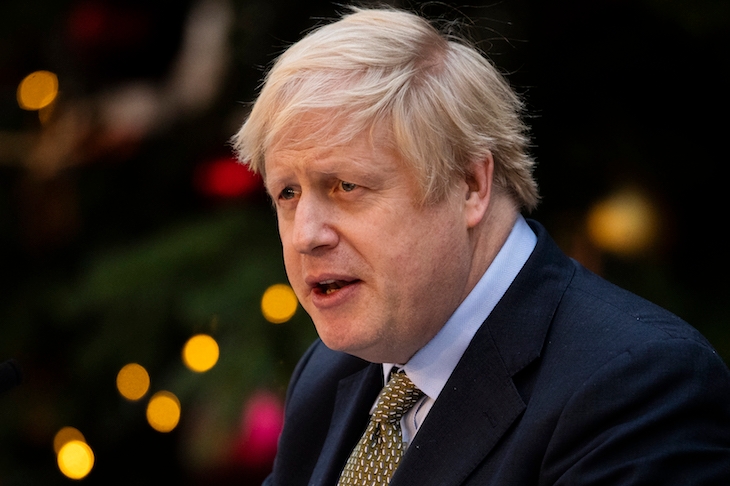Much of the political class is still in a state of shock. Many are tempted to echo Lord Melbourne: ‘What all the wise men promised has not happened and what all the damned fools said would happen has come to pass.’
This was an extraordinary election because underneath all the stress it was a very boring affair. From the beginning, the polls predicted a sizeable outright Tory victory. But after 2017, no-one was ready to trust the polls. Among Tories, though well concealed, there was also a widespread fear that Boris would implode. That did not happen. Instead, everyone stuck to the script.
To the very end, a number of high-minded Tories were unhappy. Surely the electorate would grow restive at the lack of intellectual content? That did not happen either, at least on any significant scale. This must count as one of the most controlled and successful electoral strategies in British history. If it had gone wrong, the authors would have been roundly punished. As it is, they are entitled to the blessings of a grateful party – partly for holding their nerve.
Everything was kept simple. Boris would charge around the country, emitting charm, warm fuzzies and platitudes, while making voters feel good about themselves and proclaiming ‘Get Brexit Done.’
There were two assumptions. First, that more than enough voters were heartily sick of Brexit and did indeed want it done. Second, that the Corbyn soufflé would not rise twice. In 2017, with Theresa May’s help, he came across as a likeable underdog. Since then, enough voters have realised that he could be Britain’s first Communist Prime Minister. No thank you.
Boris had a further advantage. In her own way, Jo Swinson was as useless as Jeremy Corbyn. There was a significant serious-minded Remainer constituency in Southern England, in the market for a leader whom they could take seriously. That was not Jo Swinson.
Luck is important in politics. Mrs Thatcher was helped to consolidate her hold on power by the two ‘Fs’: Michael Foot and the Falklands. Boris has also enjoyed luck. He has just triumphed over the weakest opposing party leaders in history. The PM is now master of the battlefield. Moreover, if we can draw one conclusion from the events of the past few months, it is this: never underestimate Boris Johnson.
So what will he do? First, as promised, he must get Brexit done. That just might prove easier than some Remainers have predicted. Everyone now knows that Brexit is going to happen. In Europe, they are less fed up than we Brits are with the whole business, but they have preoccupations of their own. France, Germany, Italy, Spain: all of them are facing economic and political problems. There are cross-currents. Macron, abetted by Michel Barnier in Brussels, comes from a Gaullist political tradition: people who find it hard to forgive Britain for D-day.
Much of the German elite is obstinately convinced that there is only one answer to any European problem: more Europe. If Britain were to escape from EU and prosper, that would set an appalling example and encourage tunnel-digging in other potential escapee countries. Even so, the prospect of removing Brexit from the agenda arouses increasing enthusiasm in several European capitals.
So will Brexit benefit the British economy? You pays your expert and you takes your choice. I am impressed by the divergence of opinions among those who ought to know. But two points are important. First, as the initial market reaction has shown, there is a lot of investment and other economic activity that has been delayed because of uncertainty – and the fear of a Corbyn government. That will now come on stream and boost the UK’s short-term prospects.
Second. whatever the overall Brexit outcome, there will be losers as well as winners. The government ought to be ready for this, keeping the public’s focus on the good news (assuming that there is any).






Comments